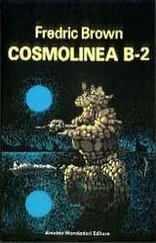Эллен Глазгоу - Barren Ground
Здесь есть возможность читать онлайн «Эллен Глазгоу - Barren Ground» весь текст электронной книги совершенно бесплатно (целиком полную версию без сокращений). В некоторых случаях можно слушать аудио, скачать через торрент в формате fb2 и присутствует краткое содержание. Жанр: Классическая проза, на английском языке. Описание произведения, (предисловие) а так же отзывы посетителей доступны на портале библиотеки ЛибКат.
- Название:Barren Ground
- Автор:
- Жанр:
- Год:неизвестен
- ISBN:нет данных
- Рейтинг книги:3 / 5. Голосов: 1
-
Избранное:Добавить в избранное
- Отзывы:
-
Ваша оценка:
- 60
- 1
- 2
- 3
- 4
- 5
Barren Ground: краткое содержание, описание и аннотация
Предлагаем к чтению аннотацию, описание, краткое содержание или предисловие (зависит от того, что написал сам автор книги «Barren Ground»). Если вы не нашли необходимую информацию о книге — напишите в комментариях, мы постараемся отыскать её.
Barren Ground — читать онлайн бесплатно полную книгу (весь текст) целиком
Ниже представлен текст книги, разбитый по страницам. Система сохранения места последней прочитанной страницы, позволяет с удобством читать онлайн бесплатно книгу «Barren Ground», без необходимости каждый раз заново искать на чём Вы остановились. Поставьте закладку, и сможете в любой момент перейти на страницу, на которой закончили чтение.
Интервал:
Закладка:
"Not to-night, Ma," Dorinda pleaded. While she spoke she began to yawn like the others. It was queer the way it kept up as soon as one of them started. Youth struggled for a time, but in the end it succumbed inevitably to the narcotic of dullness.
"I ain't sleepy," replied Mrs. Oakley, "and I like to have something to do with my hands. I never was one to want to lie in bed unless I was sleepy. The very minute my head touches the pillow, my eyes pop right open."
"But you get up so early."
"Well, the first crack of light wakes your father, and after he begins stirring, I am never able to get a wink more of sleep. He was out at the barn feeding the horses before day this morning." Dorinda sighed. Was this life?
"I don't see how you keep it up, Ma," she said, with weary compassion.
"Oh, I can get along without much sleep. It's different with the rest of you. Your father is out in the air all day, and you and the boys are young."
She went back to the kitchen, with the towels in her hand, while Dorinda took down one of the lamps from a shelf in the back hall, removed the cracked chimney, and lighted the wick, which was too short to burn more than an hour or two.
The evening was over. It was like every one Dorinda had known in the past. It was like every one she would know in the future unless-she caught her breath sharply-unless the miracle happened!
Chapter 5
The faint grey light crept through the dormer-window and glimmered with a diffused wanness over the small three-cornered room. Turning restlessly, Dorinda listened, half awake, to the sound of her mother moving about in the kitchen below. A cock in the henhouse crowed and was answered by another. "It isn't day," she thought, and opening her eyes, she gazed through the window at the big pine on the hill. The sun rose over the pine; every morning she watched die twisted black boughs, shaped like a harp, emerge from obscurity. First the vague ripple of dawn, spreading in circles as if a stone had been cast into the darkness; then a pearly glimmer in which objects borrowed exaggerated dimensions; then a blade of light cutting sharply through the pine to the old pear orchard, where the trees still blossomed profusely in spring, though they bore only small green pears out of season. After the edge of brightness, the round red sun would ride up into the heavens and the day would begin. It was seldom that she saw the sunrise from her window. Usually, unless she overslept herself and her mother got breakfast without waking her, the men were in the fields and the two women were attending to the chickens or cleaning the house before the branches of the big pine were gilded with light.
"Poor Ma," Dorinda said, "she wouldn't wake me." But she was not thinking of her mother. Deep down in her being some blissful memory was struggling into consciousness. She felt that it was floating there, just beyond her reach, dim, elusive, enchantingly lovely. Almost she seized it; then it slipped from her grasp and escaped her, only to return, still veiled, a little farther off, while she groped after it. A new happiness. Some precious possession which she had clasped to her heart while she was falling asleep. Then suddenly the thing that she had half forgotten came drifting, through unclouded light, into her mind. "Don't forget me. I shall see you soon."
The sounds in the kitchen grew louder, and the whole house was saturated with the aroma of coffee and frying bacon. Beyond these familiar scents and sounds, it seemed to her that she smelt and heard the stirring of spring in the fields and the woods, that the movement and rumour of life were sweeping past her in waves of colour, fragrance, and music.
Springing out of bed, she dressed hurriedly, and decided, while she shivered at the splash of cold water, that she would clean her shoes before she went back to the store. The day was just breaking, and the corner where her pine dressing-table stood was so dark that she was obliged to light the lamp, which burned with a dying flicker, while she brushed and coiled her hair. Beneath the dark waving line on her forehead, where her hair grew in a widow's peak, her eyes were starry with happiness. Though she was not beautiful, she had her moments of beauty, and looking at herself in the greenish mirror, which reminded her of the water in the old mill pond, she realized that this was one of her moments. Never again would she be twenty and in love for the first time.
"If only I had something pretty to wear," she thought, picking up her skirt of purple calico and slipping it over her head. The longing for lovely things, the decorative instinct of youth, became as sharp as a pang. Parting the faded curtains over a row of shelves in one corner, she took down a pasteboard box, and selected a collar of fine needlework which had belonged to Eudora Abernethy when she was a girl. For a minute Dorinda looked at it, strongly tempted. Then the character that showed in her mouth and chin asserted itself, and she shook her head. "It would be foolish to wear it today," she murmured, and putting it back among the others, she closed the box and replaced it on the shelf.
"I'll black my shoes, anyway," she thought, as she hurried downstairs to breakfast. "Even if they do get muddy again as soon as I step in the road."
That was with the surface of her mind. In the depths beneath she was thinking without words, "Now that he has come, life will never again be what it was yesterday."
In the kitchen the lamp had just been put out, and the room was flooded with the ashen stream of daybreak. Mrs. Oakley was on her knees, putting a stick of wood into the stove, and the scarlet glare of the flames tinged her flesh with the colour of rusty iron. After a sleepless night her neuralgia was worse, and there was a look of agony in the face she lifted to her daughter.
"Why didn't you wake me, Ma?" Dorinda asked a little impatiently. "You aren't fit to get breakfast."
"I thought you might as well have your sleep out," her mother replied in a lifeless voice. "I'll have some cakes ready in a minute. I'm just making a fresh batch for Rufus."
"You oughtn't have made cakes, as bad as you feel," Dorinda protested. "Rufus could have gone without just as well as the rest of us."
Mrs. Oakley struggled to her feet, and picking up the cake lifter, turned back to the stove. While she stood there against the dull glow, she appeared scarcely more substantial than a spiral of smoke.
"Well, we don't have butter every day," she said. "And I can't lie in bed as long as I've got the strength to be up and doing. Wherever I turn, I see dirt gathering."
"No matter how hard you work, the dirt will always be there," Dorinda persisted. It was useless, she knew, to try to reason with her mother. One could not reason with either a nervous malady or a moral principle; but, even though experience had taught her the futility of remonstrance, there were times when she found it impossible not to scold at a martyrdom that seemed to her unnecessary. They might as well be living in the house, she sometimes thought, with the doctrine of predestination; and like the doctrine of predestination, there was nothing to be done about it.
With a sigh of resignation, she turned to her father, who stood at the window, looking out over the old geraniums that had stopped blooming years ago. Against the murky dawn his figure appeared as rudimentary as some prehistoric image of man.
"Do you think it is going to clear off, Pa?" she asked.
He looked round at her, prodding the tobacco into his pipe with his large blunt thumb. "I ain't thinkin', honey," he replied in his thick, earthy drawl. "The wind's settin' right, but thar's a good-size bank of clouds over toward the west."
"You'd better make Rufus take a look at those planting beds up by Hoot Owl Woods," said Josiah, pushing back his chair and rising from the table. "One of Doctor Greylock's steers broke loose yesterday and was tramplin' round up there on our side of the fence."
Читать дальшеИнтервал:
Закладка:
Похожие книги на «Barren Ground»
Представляем Вашему вниманию похожие книги на «Barren Ground» списком для выбора. Мы отобрали схожую по названию и смыслу литературу в надежде предоставить читателям больше вариантов отыскать новые, интересные, ещё непрочитанные произведения.
Обсуждение, отзывы о книге «Barren Ground» и просто собственные мнения читателей. Оставьте ваши комментарии, напишите, что Вы думаете о произведении, его смысле или главных героях. Укажите что конкретно понравилось, а что нет, и почему Вы так считаете.










![Эллен Дедженерес - Кроме шуток [Как полюбить себя, продать дуршлаг дорого, прокачать мозг с помощью телешоу и другие истории от Эллен Дедженерес] [litres]](/books/384873/ellen-dedzheneres-krome-shutok-kak-polyubit-sebya-p-thumb.webp)

